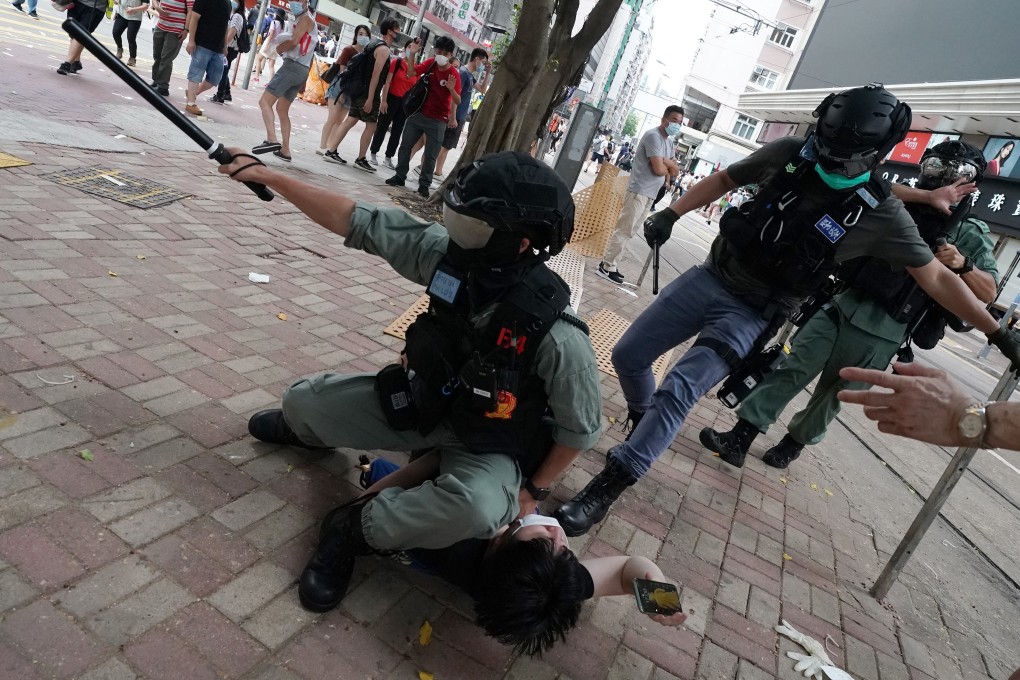National security law: police given extensive new powers to hunt down suspects
- New unit that is already operational will be responsible for six duties, including collecting intelligence and investigation
- But law makes no mention of how long a suspect can be detained, meaning the standard 48 hours will apply

Secretary of Security John Lee Ka-chiu said the National Security Department of Hong Kong Police Force would be headed by a deputy police commissioner, but the candidate has yet to be announced.
The unit, which is responsible for six duties including collecting intelligence, enforcing operations and investigating offences endangering national security, is entrusted with eight types of powers under the new law.
Upon approval from the chief executive, officers are allowed to intercept communications and conduct covert surveillance on a person suspected of endangering national security. Currently, all law enforcers outside the new unit must obtain permission from a panel judge to intercept postal or telecommunications, or carry out other highly intrusive surveillance.

00:35
New purple flag warning protesters about breaking national security law used by Hong Kong police
“In relation to national security matters, the targets that we are dealing with are likely to be state-level opponents,” Lee said. “Their abilities, their methods and their experience, in this regard, are something that we must take care of in order to ensure that we can sufficiently discharge our duties.”